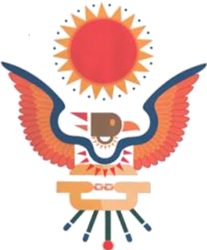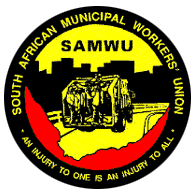
The Congress of South African Trade Unions is a trade union federation in South Africa. It was founded in 1985 and is the largest of the country's three main trade union federations, with 21 affiliated trade unions.

Public Services International (PSI) is the global union federation for workers in public services, including those who work in social services, health care, municipal services, central government and public utilities. As of November 2019, PSI has 700 affiliated trade unions from 154 countries representing over 30 million workers.
Anarchism in South Africa dates to the 1880s, and played a major role in the labour and socialist movements from the turn of the twentieth century through to the 1920s. The early South African anarchist movement was strongly syndicalist. The ascendance of Marxism–Leninism following the Russian Revolution, along with state repression, resulted in most of the movement going over to the Comintern line, with the remainder consigned to irrelevance. There were slight traces of anarchist or revolutionary syndicalist influence in some of the independent left-wing groups which resisted the apartheid government from the 1970s onward, but anarchism and revolutionary syndicalism as a distinct movement only began re-emerging in South Africa in the early 1990s. It remains a minority current in South African politics.

The National Education, Health and Allied Workers' Union (NEHAWU) is a trade union in South Africa. With a membership of 276,000 it is the largest public sector union in the country. It organizes State, Health, Education and Welfare workers.

The Independent Municipal & Allied Trade Union (IMATU) is a trade union in South Africa. It has a membership of 107,000 and is the largest politically independent trade union in the local government sector.

The environmental movement in South Africa traces its history from the beginnings of conservation and preservation groups in the late 19th century, to the rise of radicalism amongst local ecologists and activists. The early environmental movement in South Africa was primarily made up of conservation groups whose membership was dominated by affluent whites. Many of these groups advocated for forms of fortress conservation that were used to justify forcibly removing Black South Africans from their land. Throughout the mid to late 20th century, justice-centered environmental groups sprung up in connection with anti-apartheid movements advocating for change on issues that affected the environment as well as the rights of workers and rural peoples, showing how environmental issues in the country were "inextricably linked to issues of race and politics."

The Federation of South African Trade Unions (FOSATU) was a trade union federation in South Africa.

Maluti-a-Phofung Municipality is a local municipality within the Thabo Mofutsanyane District Municipality, in the Free State province of South Africa. It encompasses substantially all of the former bantustan of QwaQwa, except for the small enclave at Botshabelo. The population is almost entirely Basotho. The municipality is named after the Drakensberg mountains. The peak is known as the Sentinel, which is called Phofung in Sesotho.

The Workers and Socialist Party (WASP) is a Marxist and Trotskyist political party in South Africa affiliated to International Socialist Alternative.
The South African Railways and Harbours Union was formed by black workers of the South African Railways and Harbours Administration after they had been expelled from the National Union of Railway and Harbour Servants.
The Workers' Library and Museum was a non-profit labour service organisation (LSO) active in Johannesburg, South Africa between 1987 and the early 2000s. The organisation provided a meeting and learning centre for labour activists as well as students from the nearby Alexandra and Soweto areas. In 1994, it was expanded into the Workers and Museum in Newtown, Johannesburg, with the only museum in South Africa focussed on working people other than the Slave Lodge, Cape Town.

The Transport and General Workers' Union (TGWU) was a trade union representing transport workers, and at times workers in other sectors, in South Africa.
The Hotel and Restaurant Workers' Union (HARWU) was a trade union representing hospitality workers in South Africa.
The Cape Town Municipal Workers' Association (CTMWA) was a trade union representing local government workers in Cape Town, South Africa.
The Municipal Workers' Union of South Africa (MWUSA) was a trade union representing local government workers in South Africa.
The Post and Telecommunication Workers' Association (POTWA) was a trade union representing workers in the communications industry in South Africa.
The General Workers' Union of South Africa (GWUSA) was a general union in South Africa.
The South African Association of Municipal Employees (SAAME) was a trade union representing local government workers in South Africa.
The South African Equity Workers' Association (SAEWA) is a general union in South Africa.
The Democratic Municipal and Allied Workers' Union of South Africa (DEMAWUSA) is a trade union representing workers employed by local authorities and state governments in South Africa.









